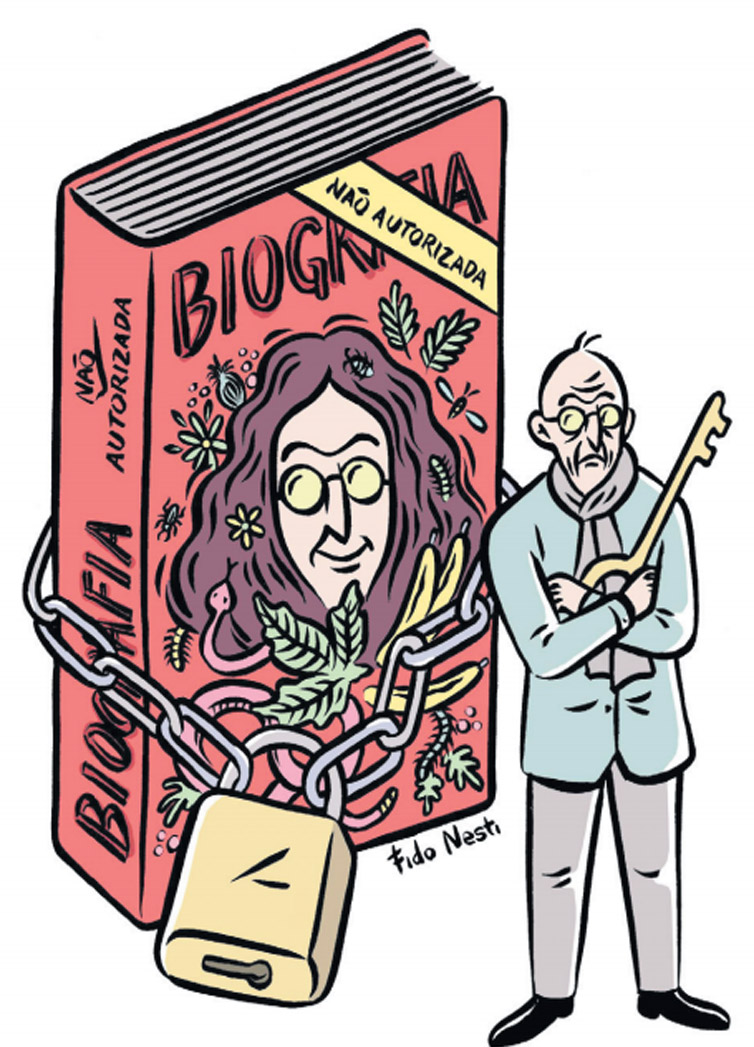Latest Photo Galleries
Brazilian Markets
13h35 Bovespa |
+1,50% | 126.524 |
16h43 Gold |
0,00% | 117 |
13h40 Dollar |
-0,97% | 5,1135 |
16h30 Euro |
+0,49% | 2,65250 |
ADVERTISING
Talking Seriously Now
10/15/2013 - 12h15
Advertising
SUZANA SINGER
suzana.singer@grupofolha.com.br
The controversy about biographies caught fire. The fuse was the front page of the arts and entertainment section which reported that Gilberto Gil, Caetano Veloso and Chico Buarque joined the crusade against freedom of biographies (Oct. 5).
The composers, allies of Roberto Carlos and his old partner Erasmo, Milton Nascimento and Djavan, formed the "Find Out" association to defend their own interests as well as the rights of the subjects of biographies and their heirs.
The legislation preserves freedom of expression, but, at the same time, allows celebrities to prohibit work which "affects their honor, fame, respectability or that which affects business interests." That was what Roberto Carlos did in stopping circulation of a book about his life six years ago.
The National Association of Book Publishers, with the support of dozens of intellectuals, has tried to change the current situation through a case in the Supreme Court. There is also a law going through Congress.
To refute the accusation that it favors censorship, "Find Out" asserts that it does not prohibit anything, but instead discusses ways of guarding the privacy of famous people.
The artists do not accept the argument that those who are uncomfortable with a biography can go to court demanding indemnification. They say that in Brazil, apart from the United States, the judicial penalties are not high enough to have a punitive or compensatory nature.
On the side of those who defend freedom of expression of writers, there is no lack of people wanting to talk. On Wednesday, the arts and entertainment section published a long open letter to Caetano Veloso, written by American Benjamin Moser, biographer of Clarice Lispector. He asserted that freedom is either absolute or does not exist, comparing Caetano to an "old-fashioned power broker" and was pushing for a focus on "the positive side."
In a lecture at the Frankfurt Book Fair, writer Laurentino Gomes said that to impose restrictions on biographies is to "immobilize a story and take from it the most enchanting component: complexity and uncertainty involving its characters."
| Editoria de Arte/Folhapress | ||
 |
||
| Ombudsman |
Since 2007, Folha has already published published seven editorials about the topic, always supporting changes in the law. "It still is curious - and sad - that artists who were censored and criticized this modus operandi typical of dictatorships intend, in an open democracy, to become censors," the editorial accused on Tuesday.
It's hard to find representatives of the other side among those who support the legislation. Until Friday, among the seven main backers of "Find Out," only Djavan has made a statement. In a note sent to the Rio daily "O Globo," he spoke in favor of freedom of expression but asserted that it is not fair that "publishers and biographers make fortunes while the onus of suffering and indignation rests upon the subjects of biographies."
Entrepreneur and producer Paula Lavigne, the former wife of Caetano, was stuck with the difficult role of explaining the position of musicians. The controversy, in fact, began after an interview she gave to the arts and entertainment section.
Paula accused Folha of distorting her statements, which were given in writing and complemented by telephone. It would be mistaken to translate the position of "Find Out" simply as a defense of censorship of biographies because the association proposed that "rights and obligations be impartial."
It's not clear what this means, but the debate is obviously unbalanced. A lot more space has been devoted to criticizing these artists, called traitors, censors, obscurantists, and mercenaries.
The newspaper is not to blame for this asymmetry. Folha offered space to those who support the opinion which is opposite to its own, but the idols of popular music prefer silence.
I sought representatives of the artists all week. Chico Buarque is writing a book in Paris. Gil went to Italy, and Djavan is also traveling. Caetano prefers to write about it in his column in "O Globo." Milton Nascimento did not want to comment. Erasmo Carlos is recording a new album. And the "king" Roberto Carlos did not respond to interview requests.
Dodging public debate, will the artists allow you to ask "what will happen/who goes around whispering/in verse and song?/which go together/in the tar of lairs?"
TRANSLATED BY JOHN WRIGHT
Read the original article



